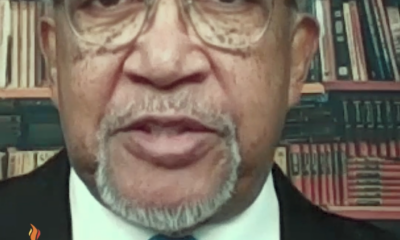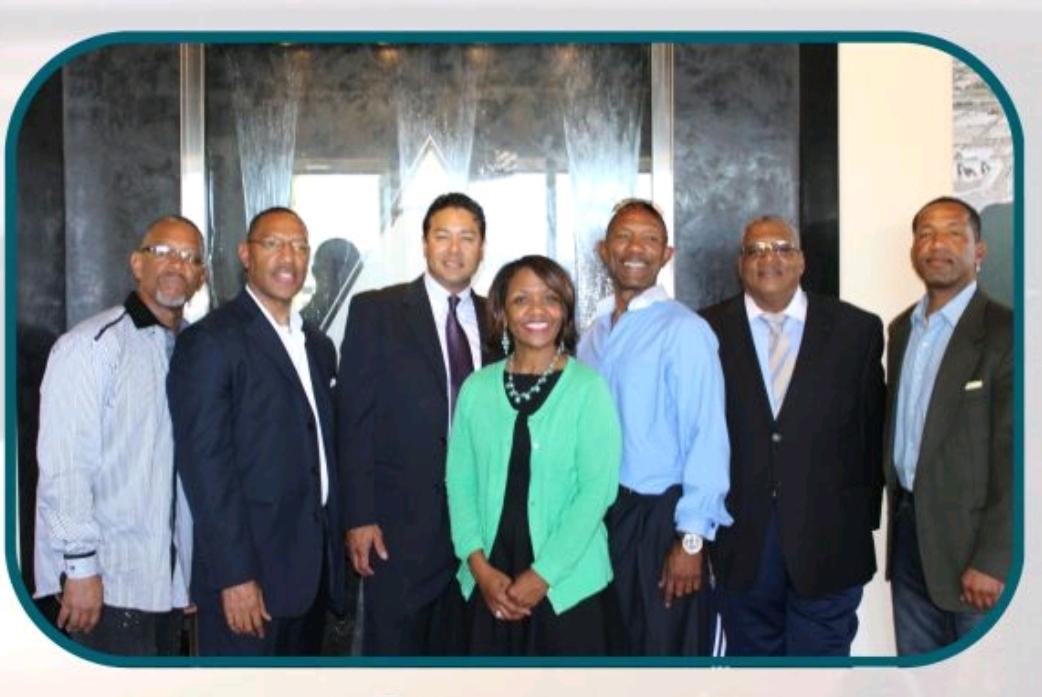By Jonika Stowes
After working at a dental practice for nine months, Dr. Grace Warren of Nokomis Dental Center not only knew she wanted to own her dentistry business but also own the building that housed it.
She opened her first location in 1984 — a storefront on Lake Street, between a video store and a bowling alley. Six years later, she bought her own building on Cedar Avenue in South Minneapolis.
“It’s investing in myself,” she told her former landlord. “As a small business owner, you have to provide for your retirement. Most dentists are going to be practicing for a minimum of 30 years,” says Dr. Warren.
The Minneapolis native says she only knows of herself and one other African American woman in private practice right now in the state. Warren credits her late high school guidance counselor, Fletcher Cooley, with focusing her mindset towards even going to college. Her parents never attended college, her mother had a high school education, and her father didn’t make it past eighth grade.
Warren said Cooley, as a Black man, challenged her and every Black child to go to college or trade school. When she first went to college, she didn’t know what she wanted to do, but she knew she loved science. After attending the University of Pennsylvania, she returned to Minnesota with a biology degree in hand and had a decision to make: chiropractic care or dentistry.
After a summer internship at dentist Dr. Larban Otieno-Ayim’s North Minneapolis office, she went on to the University of Minnesota School of Dentistry and was ready to start her own business.
Again, she references the power of mentorship, this time via veterinarian Dr. Albert Edwards, who gave her a blank check and said, “You can use up to $10,000 — just let me know when you get ready to start.”
Warren ultimately used $2,000. “I was so happy when I could go and pay that man back his two thousand dollars,” said Warren.
Warren remembers MSR doing an article on her when she first opened her doors more than 35 years ago. Here, we chat with her about becoming a fixture in the community and leaving a legacy of mentorship and future dentists.
MSR: You’ve been in business for 35 years. What makes your dentistry services stand out?
Grace Warren: People realize they’ll get personalized care, getting to know them and taking time with them. One woman I went to high school with is a patient, and she brought her kids, and her kids brought their kids. I began counting, letting her know I have three generations, and she said, “No, Grace, actually you have four — my mother [deceased] was also your patient.”
They know they’re going to see the same faces, not see a different hygienist or doctor every time they walk in the door.
I stress a lot on education and wanting people to understand the connection between their oral health and their physical health — we want to look at you comprehensively. We take blood pressures because if you have hypertension that’s a sign you have cardiovascular disease, and that may affect your periodontal health or your gum health. We take the time to let people know that you care about them and really get to know them and their family.
We’ve seen people go through health crises. Sometimes I call to check up on patients even though they don’t have an appointment, because I know they’re going through cancer treatment. With a small private practice, you can do that, and I think people appreciate it.
MSR: What has been the most rewarding part of owning your business?
GW: Being self-employed, I can dictate how much time I want to spend with people, and it gives me the chance to really develop personal relationships without feeling like I’m on a time clock to rush to get through something and not really get to know folks. I really value that.
I’m very fortunate I don’t have any debt and our practice is busy enough where I’m good financially. Although I knew I would make a good income, that was never my motivation in dentistry.
It’s [also] a different dimension when Black kids come in and see someone who looks like them. Whether it’s subconscious or not, they start thinking, “Maybe, I can do that. There’s a Black dentist, a Black physician, a Black lawyer. Maybe I could do that when I grow up.”
MSR: What has been your biggest challenge?
GW: I worked for other people for nine months and knew I didn’t want to work for anyone else for nine more months. In the beginning, it was the finances. You come out of dental school with debt. I didn’t have a lot of debt, but I also didn’t have collateral
One bank told me to put my parents’ house up as collateral, and I wouldn’t do that. Then [it was] mentally getting prepared, setting up and then keeping up with technology. People expect a certain level of technology, and it’s expensive.
MSR: Three decades later, what does your vision look like for your business?
GW: To continue to mentor the next generation. As you begin to exit stage right as they say [retirement], you’re more conscious of hoping someone steps in your shoes… I know one woman who wants to open her own practice, [so] let’s strategize a plan…
I came out of dental school owing $60,000 worth of debt and today, they owe more than that in one year. It’s closer to $400,000 now… Maybe you can’t do a solo dental practice right now, but [you can] partner with another dentist…and pool your efforts, resources, time and money…
Not all [dentists] want to go into private practice. Some of them are quite content working for someone else, and that’s fine.
MSR: What advice would you give to an aspiring entrepreneur?
GW: Always invest in yourself and build a strong work ethic. It is not nine to five and you have to accept that it’s not going to be. Hopefully, if you’re married, you have a spouse who is supportive of that.
Also, you have to always give back, whether it’s giving back to your community or mentoring the next generation. I do a lot of what they call “goodwill dentistry” for people who just can’t afford it, like senior citizens. That’s part of giving back… You need to inspire, serve as a role model.
One of my mentees is a pediatric dentist who’s now out in D.C. From the time she was seven years old, she knew she wanted to be a dentist, never wavered — and that’s really odd. So when they would have “Take Your Daughter to Work” day, she would shadow me. She went down to Georgia for undergraduate school, came back to Minnesota, and I wrote her a recommendation for dental school. She got into Howard University, did a residency in pediatric dentistry, and is now Dr. Alicia Reynolds in Washington, D.C.
You can’t buy that feeling of knowing you served to inspire maybe one person to just really pursue their dreams because they came in as a little Black girl and saw a Back female dentist and thought, “I can become a dentist.” That’s priceless.
Nokomis Dental is offering new MSR patients without insurance a free first-time exam and 10 percent off an x-ray and cleaning through March 31.
This article originally appeared in the Minnesota Spokesman-Recorder.


 #NNPA BlackPress4 weeks ago
#NNPA BlackPress4 weeks ago
 #NNPA BlackPress4 weeks ago
#NNPA BlackPress4 weeks ago
 Activism2 weeks ago
Activism2 weeks ago
 Activism2 weeks ago
Activism2 weeks ago
 Activism3 weeks ago
Activism3 weeks ago
 Activism2 weeks ago
Activism2 weeks ago
 Activism7 days ago
Activism7 days ago
























































